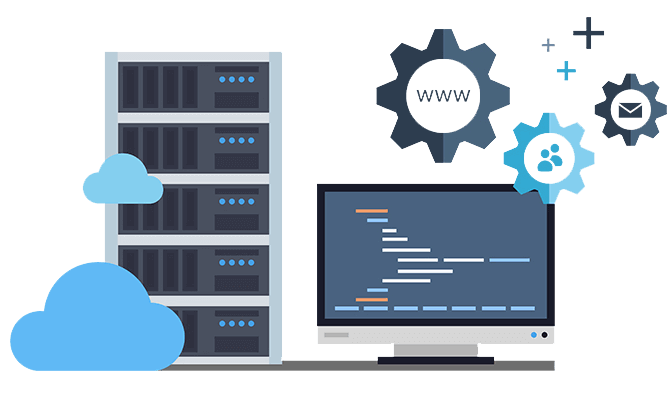Having a server in your business can make all of the difference when it comes to efficiency. Depending on your decision, it could also restrain, or aid in your ability to expand. So where do you start when it comes selecting the best server for your business? In this week’s newsletter, we will go over what works best for your business server needs, as well as help guide you to making the right decision.
Acquiring a server for your business is a big decision, so some nervousness is understandable. Choosing the right server depends in large measure on the applications you intend to run on it. If all you need is file sharing, as well as some client back up, please refer to last week’s newsletter on NAS. Lets say you’re looking into setting up active directory for your business, or in need of large storage requirements, then you’ll want a more robust option such as a tower, rack, or blade server.

Understanding the functions of a server
Small to medium businesses need servers that scale to their needs. You should not overpay for resources that you do not use. You should also have sufficient hardware to deal with growth when it comes to deciding on a server.
Here are a few benefits of having a server in a SMB environment:
- Storing documents – While this may be one of the more obvious reasons, storing documents is essential for business continuity and data protection. This also can help enable employees to work remotely.
- Higher security level – If your business deals with sensitive data that may be irreplaceable, then the “do I need a server” question is probably overdue. A server can play a key role in making sure your business data and files are more secure from corruption, loss or unauthorized access.
- Growth – If you have as little as two computers in your business, you could benefit from a server. This is especially true if your staff share work-related information, and/or you’re considering adding staff members in the future.
So, what exactly will your server do? Your business is in need of having a server to handle one or more specific tasks such as:
- Provide authentication for a domain – Username, password, levels of access, and security settings reside in a designated server computer or network switch, called a domain controller. This is used for managing Active Directory (AD). Be sure that if you’re in need for AD, that you have a virtualization-capable server.
- Running shared software – Centralizing applications to their native framework will help improve performance under heavy usage and make updates easier.
- Hosting a website with a web server – When talking about web servers, note that there are two partitions – an HTTP server and a database server. Look for hardware redundancy as well as increased RAM capacity.
A small business server can power these services and much, much more. A powerful server is capable of supporting all of them simultaneously., although there are benefits to splitting functionality.
Server options
As a company, you want to do your research and understand the many options that are available to you. We have helped by comprising a list of server options that are available for your business.
- Tower Servers – This option is the first up from NAS (network attached storage). Towers are pricier than NAS, however much cheaper than rack mount systems. They can operate on the floor, or on top of a desk. A high-end tower server can pack a punch.
- Rack Servers – If you anticipate the need to run multiple servers, either right away or in the future then this may be the option for you. A rack permits you to fit many servers into a relatively small space, and typically includes a cable-management system to keep the installation neat.
- Blade Servers – The primary distinction between a rack server and a blade server is that several blade servers operate inside a chassis. Since the chassis provides the power, cooling, input-output and connectivity for all devices inside it, you don’t have to deal with new cables when you add something.
Bottom line
As your business grows, so does the need for implementing new server options. It’s a good sign that your business is growing when you decide it’s time to purchase a new server. Don’t let this decision slow down your growth. Let us help you find the option that meets your needs, as well as gives you room to grow.